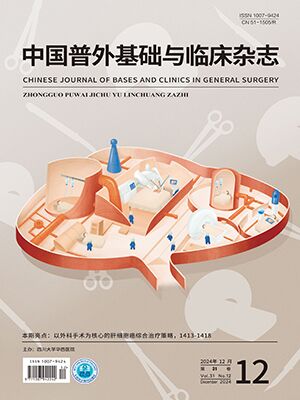Objective To investigate the expression of caspase-3 in xenograft that was treated with targeted therapy with magnetic nanoparticles in nude mice. Methods QBC939 cell lines were injected into nude mice subcutaneously to establish the model of human cholangiocarcinoma xenograft. After two weeks of tumor inoculation, the animal models were divided randomly into 4 groups: group A received placebo (sodium chloride), group B were treated with magnetic nanoparticles (250 mg/kg), group C were treated with magnetic nanoparticles (150 mg /kg) combined with inner-stent, group D with magnetic nanoparticles (250 mg /kg) combined with inner-stent (the inner-stent was used to generate the magnetic targeting effect). The 21th day after treatment, expression of caspase-3 in tumor cells of each groups were measured with histochemical method and RT-PCR. Results The quantity of caspase-3 in tumor cells that were treated with magnetic nanoparticles (250 mg/kg) combined with inner-stent was the most (P<0.05), and the quantity of caspase-3 in cells of group C was significantly more than that of the other two groups (P<0.05). While the quantity of caspase-3 in group B was more than that of the control group(P<0.05). Conclusion The use of magnetic nanoparticles combined with inner-stent may increase the expression of caspase-3, and the expression is dose-dependent with magnetic nanoparticles.
Citation: LI Hong,ZHENG Jianwei,TANG Tao,ZOU Shengquan.. Expression of Caspase-3 in Targeted Therapy with Magnetic Nanoparticle in Cholangiocarcinoma Xenograft of Nude Mice. CHINESE JOURNAL OF BASES AND CLINICS IN GENERAL SURGERY, 2006, 13(6): 685-688. doi: Copy
Copyright © the editorial department of CHINESE JOURNAL OF BASES AND CLINICS IN GENERAL SURGERY of West China Medical Publisher. All rights reserved




